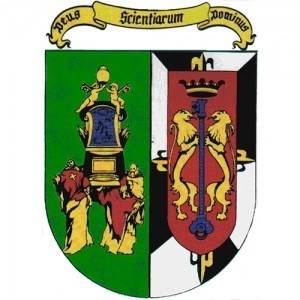Photos of university / #ucsdrd
The Bachelor’s Degree in Structural Engineering at the Catholic University of Santo Domingo is a comprehensive academic program designed to prepare students for the complex and dynamic field of structural design, analysis, and construction. This program aims to develop highly skilled professionals capable of contributing to the infrastructure development and sustainability of urban environments through innovative engineering solutions. The curriculum combines rigorous coursework in fundamental engineering principles, such as mechanics, materials science, and mathematics, with specialized training in structural analysis, design, and safety standards. Students will gain practical experience through laboratory sessions, project work, and internships, enabling them to apply theoretical knowledge to real-world challenges. The program emphasizes the importance of sustainable development, environmental considerations, and the use of modern engineering technologies. Graduates will be equipped to work in various sectors including construction, consulting engineering firms, government agencies, and research institutions. The faculty team comprises experienced professionals and researchers dedicated to fostering academic excellence and practical competencies. With a focus on analytical skills, technical proficiency, and ethical responsibility, the program prepares students to design resilient, efficient, and innovative structures that meet the needs of society. Throughout the course of study, students will engage in interdisciplinary projects that enhance teamwork, communication, and problem-solving abilities. The Bachelor’s Degree in Structural Engineering at the Catholic University of Santo Domingo is committed to producing engineers who are not only technically competent but also socially responsible, capable of contributing positively to the development and safety of infrastructure in the Dominican Republic and beyond.
The Bachelor of Science in Structural Engineering at the Catholic University of Santo Domingo is a comprehensive program designed to prepare students for designing, analyzing, and constructing safe and sustainable structures. The curriculum provides a solid foundation in engineering principles, mathematics, and physics, combined with specialized courses focusing on the analysis and design of various structural systems. Throughout the program, students gain hands-on experience through laboratory work, computer-aided design, and practical projects that simulate real-world engineering challenges. The program emphasizes the importance of safety, environmental sustainability, and innovative construction techniques, equipping graduates with the skills necessary to contribute effectively to infrastructure development. Students will explore topics including concrete and steel structures, seismic design, foundation engineering, and materials science, among others. The program also fosters professional development through internships, research opportunities, and collaboration with industry stakeholders. Upon completing the degree, graduates will be qualified to work in a range of sectors such as construction, consulting engineering, government agencies, and private firms. They will be prepared to undertake complex structural design projects, oversee construction processes, and ensure compliance with safety standards and regulations. The academic staff comprises experienced engineers and educators committed to providing quality education and mentorship. The program aims to produce competent professionals capable of addressing the evolving demands of the construction and infrastructure sectors, promoting sustainable development and technological innovation in the Dominican Republic and beyond.
Program Requirements:
The Bachelor of Science in Structural Engineering at the Catholic University of Santo Domingo requires prospective students to meet a set of academic prerequisites to ensure their preparedness for rigorous engineering coursework. Applicants must hold a secondary education diploma with a strong foundation in mathematics and sciences, particularly in subjects such as mathematics, physics, and chemistry. Admission generally requires passing the university entrance examination, demonstrating proficiency in core academic areas relevant to engineering studies.
Once admitted, students are required to complete a comprehensive curriculum that encompasses foundational courses in mathematics, including calculus, linear algebra, and differential equations. These courses build the necessary analytical skills essential for structural analysis and design. Physics courses focusing on mechanics, materials science, and thermodynamics are also mandatory to provide a solid understanding of physical principles underpinning structural engineering.
In addition to core technical courses, students must take courses in computer-aided design, structural analysis, and materials engineering. The program emphasizes practical learning through laboratory work, design projects, and internships, which are integral to the curriculum. Students are expected to participate in these practical components to develop competencies in real-world applications of structural engineering principles.
Furthermore, the program requires students to satisfy general education credits in humanities, social sciences, and communication to foster well-rounded engineers capable of effective teamwork and professional communication. Ethical considerations and sustainable engineering practices are integrated throughout the coursework, aligning with contemporary industry standards.
To graduate, students must also complete a capstone project or thesis that demonstrates their ability to apply theoretical knowledge to solve complex structural problems. This project involves research, design, analysis, and presentation components, culminating in a comprehensive report evaluated by faculty.
Overall, the program aims to prepare graduates with a robust technical foundation, practical skills, ethical awareness, and a commitment to sustainable development, fully equipping them for careers in structural engineering and related fields.
The Catholic University of Santo Domingo offers several financing options for students enrolled in the Structural Engineering program to facilitate their academic pursuits and reduce financial barriers. Students can take advantage of government-sponsored scholarships and grants, which are designed to support talented and deserving individuals based on academic merit and economic need. These scholarships often cover partial or full tuition fees and are awarded through a competitive selection process.
In addition to government funding, the university provides internal scholarships and financial aid programs aimed at assistive support for enrolled students. These programs are available to students demonstrating financial need, excellent academic performance, or active participation in university activities. The university's financial aid office offers personalized guidance to help students identify suitable funding opportunities and complete necessary application procedures.
Furthermore, students have access to installment payment plans for tuition, allowing them to spread out their payments over the academic year, making higher education more accessible. The university also collaborates with financial institutions and credit providers to offer student loans with favorable terms, including low interest rates and flexible repayment options, thereby enabling students to finance their studies without undue hardship.
Part-time work opportunities within the university, such as research assistantships or administrative roles, are available to eligible students. These positions not only provide financial support but also valuable practical experience in the field of engineering. Some students may also qualify for sponsorship from private companies and industry partners interested in developing future professionals in structural engineering.
Overall, the Catholic University of Santo Domingo is committed to ensuring that qualified students can access quality education in Structural Engineering through a diverse range of financing options tailored to different needs and circumstances. Prospective and current students are encouraged to consult the university's financial aid office and official website for detailed information on available programs, application procedures, eligibility criteria, and deadlines.
The Bachelor’s Degree in Structural Engineering at the Catholic University of Santo Domingo offers a comprehensive education in the design, analysis, and construction of infrastructure projects. This program is designed to equip students with the fundamental knowledge of physics, mathematics, materials science, and engineering principles necessary to develop safe, sustainable, and innovative structures. Throughout the course of study, students engage in rigorous theoretical coursework complemented by practical laboratory sessions and real-world project experiences, preparing them for the dynamic challenges of modern civil and structural engineering fields. The curriculum emphasizes critical thinking, problem-solving, and technical competencies essential for designing buildings, bridges, dams, and other large-scale structures that meet safety standards and environmental considerations.
Students also explore specialized topics such as seismic design, materials durability, construction quality control, and the use of advanced computing tools for structural analysis. The program encourages multidisciplinary collaboration, ensuring that graduates are capable of coordinating with architects, urban planners, environmental specialists, and construction managers. Ethical considerations and sustainable development practices are integrated into the coursework to promote responsible engineering solutions. Additionally, the university provides access to modern laboratories and computing resources to support experimental research and design optimization.
Graduates of the Structural Engineering program at the Catholic University of Santo Domingo are prepared for professional careers in engineering consulting firms, construction companies, government agencies, and research institutions. They can also pursue higher education or specialization in related fields such as geotechnical engineering, environmental engineering, or construction management. The program fosters a strong foundation in leadership, communication, and project management skills, enabling graduates to effectively oversee engineering projects from conception to completion. With a curriculum aligned with international standards, the program aims to produce highly competent engineers who contribute to the development of resilient, efficient, and environmentally friendly infrastructure for the Dominican Republic and beyond.










